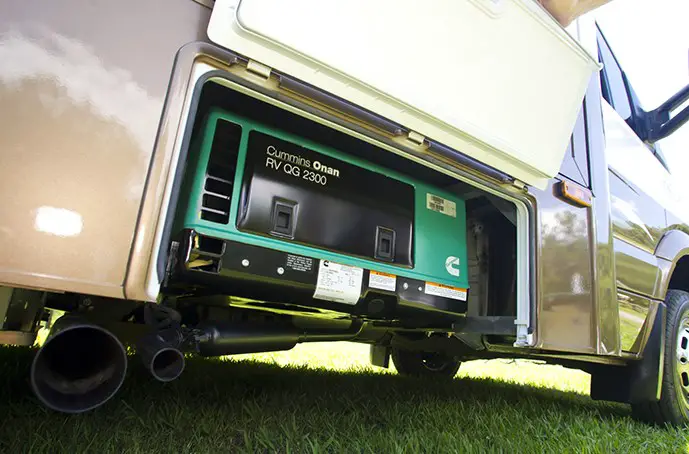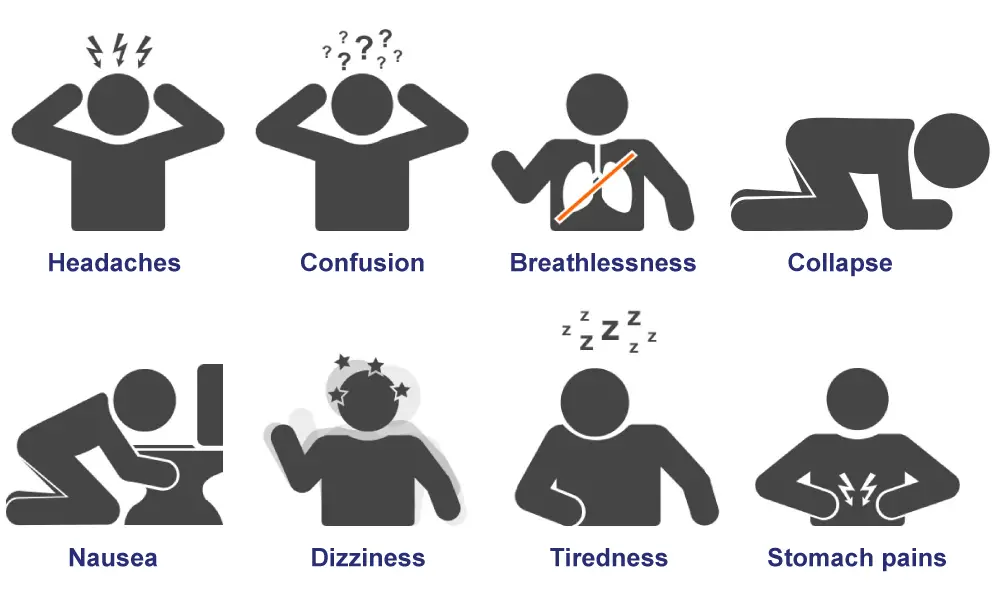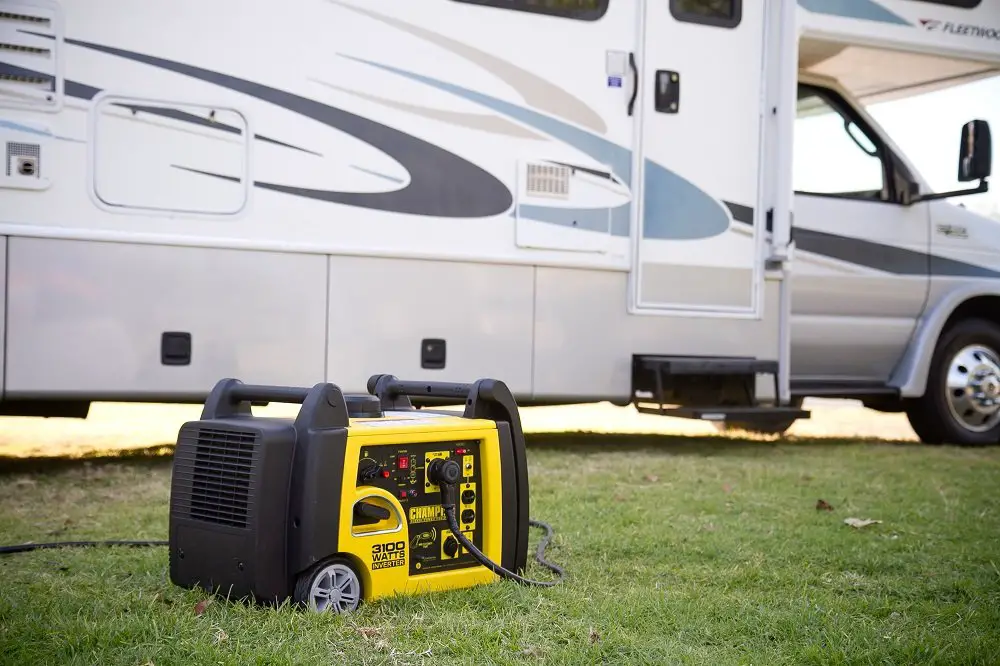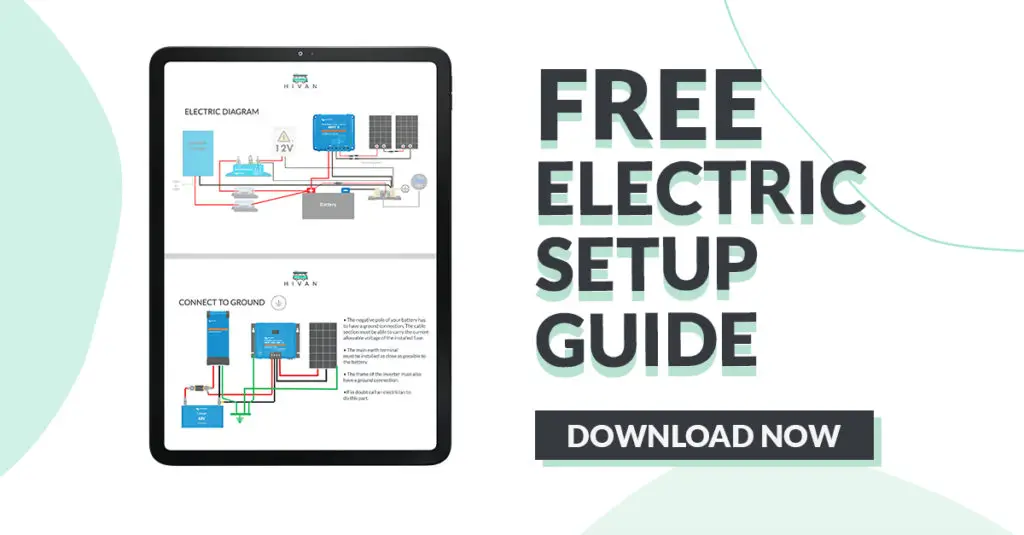Whether you’re a near-constant traveler or someone who only breaks out the RV for special occasions a few times a year, it’s important to know the rules and etiquette of RV living (more about Dos and Don’ts of van life here). For example, you always need to spray down your dump station, and you should never intrude on someone else’s campsite. But what about sleeping with the generator running?
Technically, you can sleep with your RV’s generator still running. However, most people and campsites discourage you from doing so for safety reasons. It’s also poor etiquette to have a loud generator going during a shared campground’s quiet hours when most people are sleeping.

In this article, we’ll look more closely at the safety concerns posed by running a generator while you’re sleeping. We’ll also dive a little more deeply into proper RV etiquette. Hopefully, this article will help you make an informed decision on whether or not to run your RV’s generator at night.
Can You Run the RV’s Generator While You’re Sleeping?
You can run your RV’s generator while you’re sleeping. However, just because you can do something doesn’t necessarily mean you should do it. After all, I can sleep in a bed of poison ivy and eat live wasps for breakfast, but you’ll never catch me doing either of those things.
Let’s break this topic down into a bit more detail.
Is Running a Generator at Night Safe?
Running a generator all night is pretty safe as long as you take proper safety precautions. As with most things, there are a few potential concerns, though. One of the biggest of these concerns is usually about carbon monoxide poisoning.

No one wants to go to sleep and – please forgive the ridiculous phrase – “wake up dead” from carbon monoxide poisoning in the night.
However, your generator is outside your RV, so as long as you keep your windows and doors sealed tightly shut, that shouldn’t be a problem. Installing a battery-operated carbon monoxide detector, like the Coreel Carbon Monoxide Detector from Amazon.com, is still a good idea, though.

The other big safety concern is fire. As long as it’s hooked up properly and you’ve been performing routine maintenance and safety checks on it, your generator isn’t likely to catch on fire and explode. But as we all know, accidents happen.
There are usually warning signs before something is about to go wrong with a generator. Maybe you’ll hear a strange noise or smell something that doesn’t smell quite right. Those things will alert you to a failing and potentially dangerous generator.
If you’re sleeping, though, you may miss those indicators. That’s why it’s best only to run the generator while someone is awake.
Is Running a Generator at Night Bad RV Etiquette?
Some campgrounds expressly forbid you to run your generator past a particular time.
In those parks, not only is running the generator at night bad etiquette, but it’s also blatantly breaking the rules and can cause the park to ban you from staying there.
Running a generator at night is bad etiquette in those parks. It’s also blatantly breaking the rules and can cause the park to ban you from staying there.
Find this content useful 🙂 ?
Subscribe to our Newsletter and get a free Solar Electric Diagram + shopping list.
If you’re camping somewhere alone where no one will hear it but you – boondocking – then it’s entirely up to you whether you want to risk the potential safety hazards and run your generator. Again, as long as your doors and windows are closed and you’ve properly maintained your generator, the safety risks are minimal.
How Long Can You Continuously Run an RV Generator?
Unfortunately, there’s no single answer to this question.
How long your generator will run depends on several factors, including the type, size, age, and model of the generator and whether or not it’s at full fuel capacity.
Whether your generator is portable or built-in to your RV will also play a role in how long it’ll last.

There are three main types of RV generators:
- Gasoline-powered
- Propane-powered
- Diesel-powered
Diesel-powered generators usually last the longest, assuming you’re comparing two of the same size, and you can run built-in generators far longer than you can run portable ones.
The built-in models usually last for a few days before they shut themselves down, whereas portable ones typically have a run-time of between six and 20 hours.
Either way, most generators would be capable of getting through the entire night without shutting down. Just don’t forget to take those safety concerns and RV etiquette into consideration when deciding whether or not you want to run yours.
How Can I Stay Cool Without Running the Generator?
If you’re camping in a designated RV park, you’ll usually be able to hook up and keep your RV powered even without a generator. However, sometimes, you’re camping where there are no designated RV hookups. In those cases, how do you stay cool if you can’t run your generator at night?
Believe it or not, there are actually several things you can do to keep cool at night. This video highlights several of them:
One thing the video doesn’t mention is running your generator all day. Running your generator with AC on during the day is perfectly acceptable. Most people aren’t sleeping, so there’s no breach of etiquette, and you’re awake, so it’s safe to assume you’d catch any safety issues that might arise.
In that case, run your generator and your air conditioner all day with the windows and doors sealed tightly shut. If you do that and use some of the other tips mentioned in the video – parking in the shade, blocking the windows, cooking outside, etc. – then your RV should stay pretty cool after the sun goes down and you have to shut off your generator.

You can also buy a few battery-powered fans (Outdoor Camping Fan with LED Lantern and Hook from Amazon.com) or even a battery-powered AC (Moobibear Portable Air Conditioner from Amazon.com) to help circulate the cool air while you sleep.
Final Thoughts
Although running your RV’s generator while you’re sleeping is primarily safe, there are some reasons why you probably shouldn’t do it. If you’re boondocking somewhere far away from other campers and want to risk the safety concerns, of course, that’s your decision.
However, it’s far safer (and much more polite in a community campground) to run your generator only during the day, using other methods to keep cool at night. Most importantly, keep safety your number one priority. Also, consider the feelings and comfort of other campers in the area. If you do both, you should be just fine.

